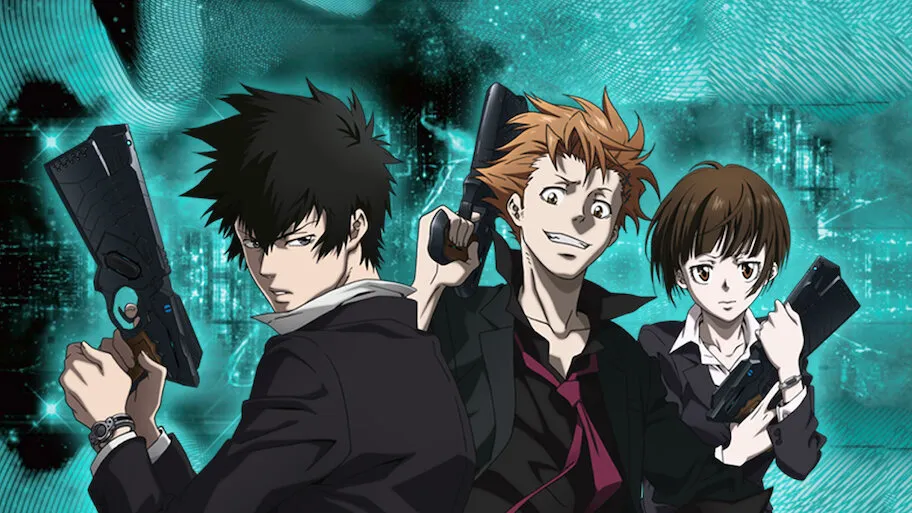
Source

REVIEW
Diving into Psycho Pass felt less like watching fiction and more like staring into a reflection I wasn’t prepared to see. The premise alone shook me: a society where your potential for criminal behavior is quantified and judged before you act. That concept wrapped around my thoughts for days, not because of how foreign it seemed, but because of how easily I could imagine it happening. Technology already predicts what we want to buy or who we might love. How far is it from predicting what we might destroy? I didn’t feel like a distant viewer. I felt like someone being measured, quietly, invisibly, always.
Learning about the Sybil System made me uncomfortable in a way I couldn’t ignore. It wasn’t the cold, futuristic mechanics of it that disturbed me most. It was the calm acceptance from the world around it. People had stopped questioning whether it was right to be watched so closely. They’d traded moral complexity for safety, and it looked peaceful on the outside. But underneath, there was a violence not in blood, but in surrender. That struck me personally. I started wondering how often I silence parts of myself to fit into systems I don’t understand but still obey. I started thinking of all the quiet ways we give up freedom every day, just to feel like we belong.





Source
Cracks in the perfect system showed through the characters more than anything else. Akane’s journey was painful to witness because she never stopped hoping. She didn’t rebel the way I expected. She didn’t burn the world down. She stood in it. She stayed awake. Her strength came from looking into the worst parts of the world and still choosing to think. That hit me hard. I kept asking myself if I would do the same. Could I stay kind in a place that weaponizes fear? Could I stay open in a world where thinking too much might get me flagged? These weren’t just questions about the show. They became questions about me.
Every interaction between Kogami and Makishima felt like a philosophical duel more than a physical one. I watched them not as enemies, but as two broken reflections of justice. Kogami believes in consequences, even if the system is flawed. Makishima believes in chaos as honesty, even if it means harm. I didn’t know who disturbed me more. Part of me wanted Kogami to win. Another part feared that Makishima was right. The fact that I couldn’t find comfort in either side is what made the story powerful. It didn’t give me a hero to follow blindly. It forced me to sit in the gray, with no exit.


Truth is, this show didn’t just tell a story. It asked something of me. It asked me to examine what kind of world I’m helping build, what kind of control I’ve agreed to without realizing it. Watching Psycho Pass was like remembering something I had forgotten on purpose. It didn’t entertain me the way most anime does. It disturbed me into awareness. And in the quiet after the final scene, I wasn’t left with closure. I was left with questions I’ll probably carry for years.

















